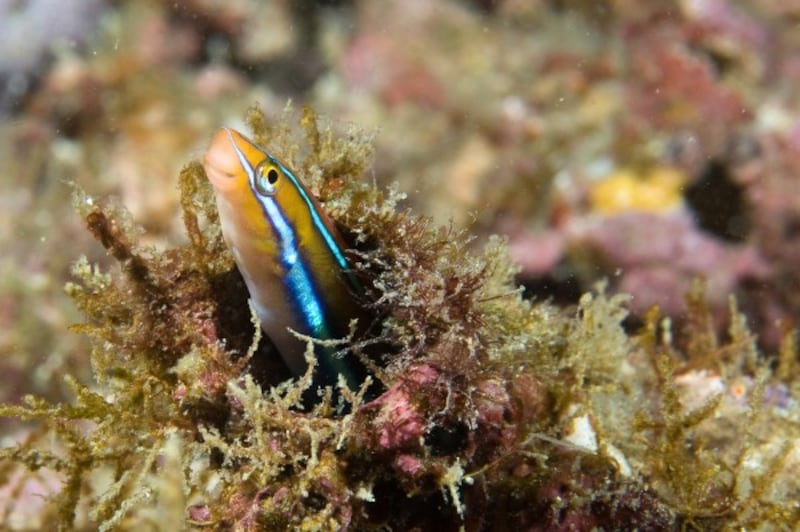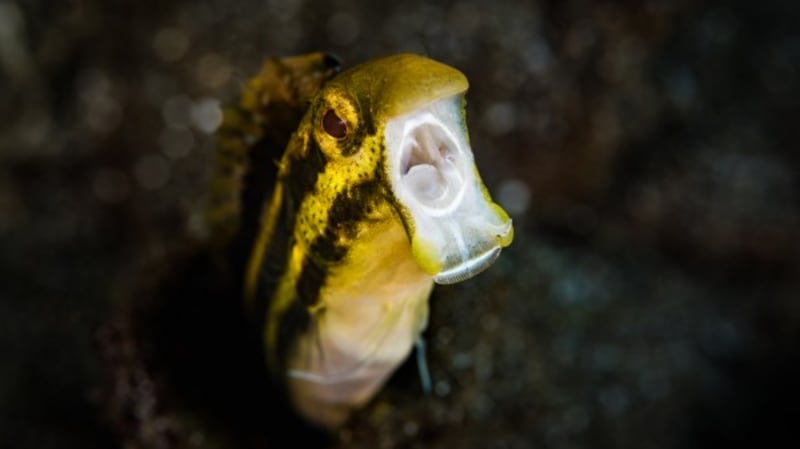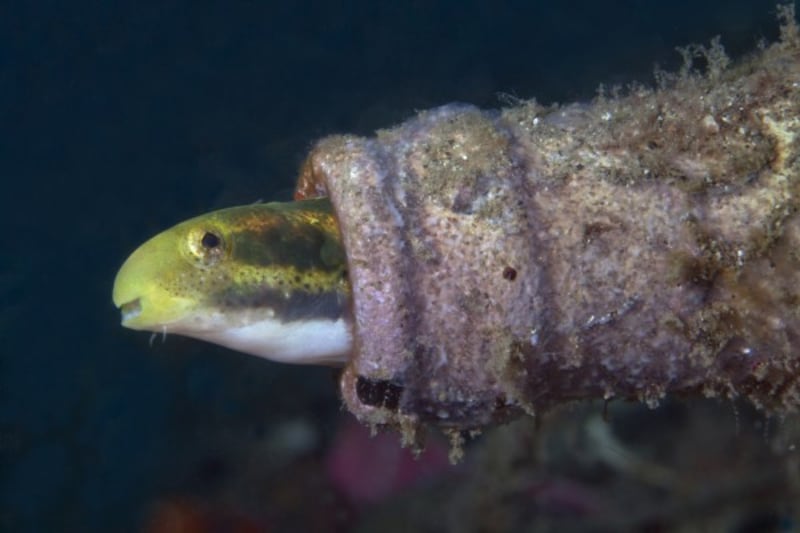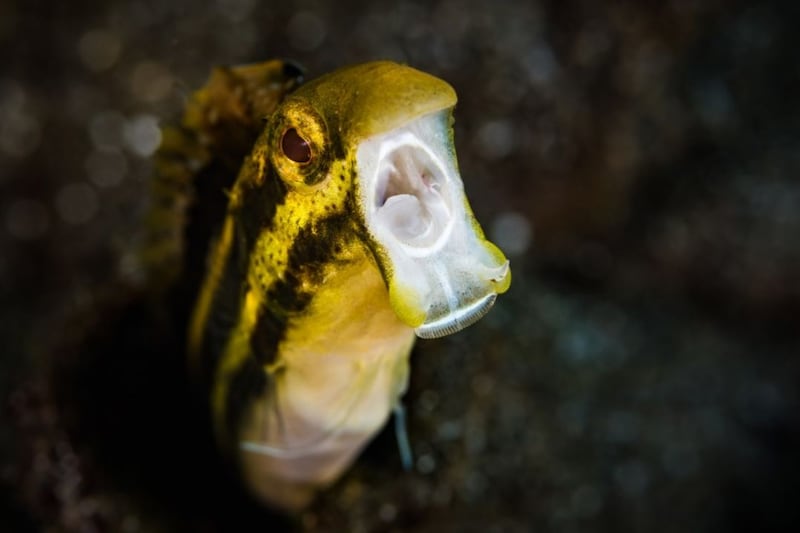They may look tiny and harmless but these two-inch coral reef fish pack a mean punch when it comes to defending themselves from predators.
Scientists have found that fang blennies disable their opponents by injecting heroin-like venom into them.
Lead researcher Bryan Fry, from the University of Queensland said: “The fish injects other fish with opioid peptides that act like heroin or morphine, inhibiting pain rather than causing it.”

Also known as poison-fang blenny or sabre-tooth blenny, the fang blenny’s venom is chemically unique and that it causes bitten fish to become slower in movement and dizzy by acting on their opioid receptors (the area in the brain and responsible for controlling pain and rewarding and addictive behaviour).
“To put that into human terms, opioid peptides would be the last thing an elite Olympic swimmer would use as performance-enhancing substances,” he said.
“They would be more likely to drown than win gold.”

They are popular as ornamental tropical aquarium fish.
“Fang blennies are the most interesting fish I’ve ever studied and have one of the most intriguing venoms of them all,” Fry said.
“These fish are fascinating in their behaviour. They fearlessly take on potential predators while also intensively fighting for space with similar sized fish.

“Their secret weapons are two large grooved teeth on the lower jaw that are linked to venom glands.”
They live in the Pacific region, including on the Great Barrier Reef and researchers believe their unusual defence mechanism could offer hope for the development of new painkillers.
First canine teeth, then venom & finally mimicry evolved in these blennies https://t.co/IAigCMTn6E #fish #evolution pic.twitter.com/kBk0BaNk0j
— Current Biology (@CurrentBiology) March 30, 2017
“This study is an excellent example of why we need to protect nature,” Fry said.“If we lose the Great Barrier Reef, we will lose animals like the fang blenny and its unique venom that could be the source of the next blockbuster pain-killing drug.”The research is published in Current Biology.



